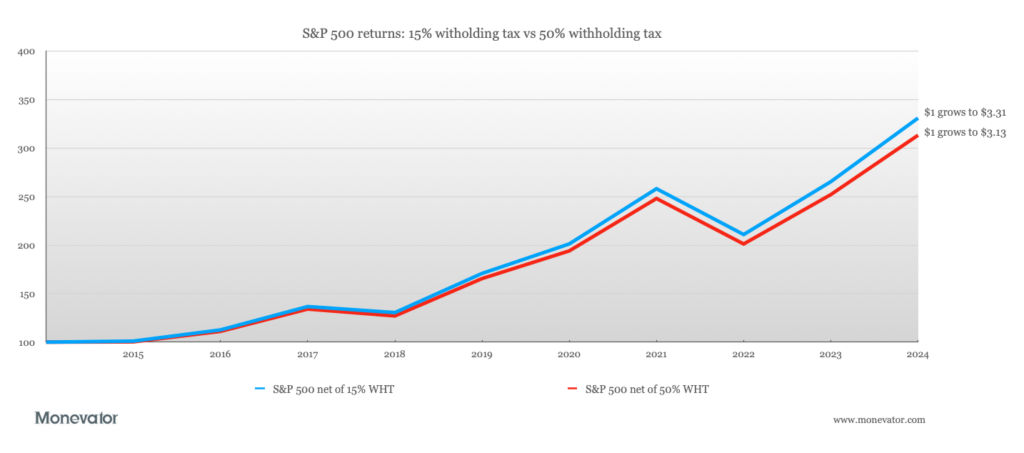Know the difference between a CDI, CREST, and a SNAFU? Ever paid much attention to how your investment platform settles your buys and sells?
Or are you a fan of keeping investing simple, and hence you sensibly avoid all that wonky jargon?
Good for you – but occasionally investing will throw you a curve ball.
I spy a CDI
Monevator reader Jamie wrote to ask us if he’s liable for additional charges on Irish domiciled ETFs, post-Brexit.
The question arose because of an email Jamie received from his platform, EQi. The email said that Irish securities have been reclassified as international equities in the UK, as of 15 March 2021. This meant they were now subject to foreign transaction charges.
My platforms did not send me a similar notice. But EQi is right that the status of Irish securities has changed.
And that includes many of the most popular ETFs used by UK investors, which happen to be domiciled in Ireland.
The gift that keeps on giving
Prior to Brexit, most Irish securities traded via CREST, the UK’s electronic trade settlement system.
However, the European Commission decided against allowing this system to continue operating in the EU.
ETF providers have therefore migrated their Irish funds to the International Central Securities Depository (ICSD) system. This enables settlement across multiple European stock exchanges.
The upshot of all the regulatory hokey cokey?
A share in an Irish ETF that is traded on the London Stock Exchange is now issued to UK investors as a CDI (CREST Depository Interest).
So, does this mean that investing in an Irish ETF – in CDI form – will now also involve paying off a dodgy courier demanding random import duties?
What is a CDI?
A CDI is a financial instrument that represents a holding of a single share held in a foreign central securities depository (CSD).
CREST is the UK’s central securities depository. It was also Ireland’s, before Brexit.
CDIs were created because non-UK shares cannot be held directly in CREST.
If you trade overseas shares then you’re likely already doing so through the use of CDIs.
When you buy a share on a foreign stock exchange, your share will be held in the name of CREST – or its intermediary – in that country’s central securities depository.
To ensure you don’t feel ripped off, CREST issues a CDI. This CDI acts as your UK proxy for the foreign share.
CDIs are generally treated the same as the underlying shares:
- The share price is the same.
- The dividends are the same and paid according to the same timeline.
- They may be liable for withholding taxes.
- They’re not subject to UK stamp duty 1. However you may pay any equivalent levy imposed by the underlying share’s home market.
- The rules and protections that govern the underlying ETFs still apply.
The main differences I’ve been able to uncover is that the bid-offer spread may vary, and your broker may charge additional international fees.
Or they may not.
In reality…
I think the reason my platforms did not notify me of any change is because they are not layering on international fees now that my Irish-domiciled ETFs no longer settle through CREST.
I checked a range of ETFs through AJ Bell. The charges are the same as they were before the final 29 March deadline for Irish securities to switch over.
The spreads are a few pence for my emerging markets and bond ETFs. They are just fractions of a penny for my developed world ETFs.
Foreign exchange fees were always previously charged whenever my dividends had to be converted into sterling. I’m not paying new fees there.
As far as I can tell the switchover of Irish ETFs to CDIs in the UK has made no difference to me whatsoever.
Please let us know if your experience differs.
It seems that some iShares, SPDR, and Vanguard ETFs made this switch months – even years – ago.
We haven’t been alerted to any funny business by Monevator readers. There hasn’t been much unrest about it in the febrile financial forums either.
I can’t help but wonder that Luxembourg-domiciled ETFs must also have been settled in the UK as CDIs, pre-Brexit?
This recent kerfuffle occurred because Ireland – unlike other European countries – previously used the UK’s central securities depository – CREST.
So unsettling though Jamie’s email was, it looks like it doesn’t make any material difference to UK investors in Irish-domiciled ETFs.
Just so long as your platform doesn’t treat the change as a nice little earner.
Take it steady,
The Accumulator
- CDIs representing shares in UK companies will be liable for stamp duty.[↩]






Comments on this entry are closed.
Thanks TA and TI for looking into this. What a great service!
the factsheets for the ETFs I hold with iShares and Vanguard say that the trading currency is GBP so foreign exchange rates should never be a factor.
Thanks TA , A reassuring statement from Vanguard et al (both as issuers and platforms) would have been nice. Are funds affected too?
Great to see this being mentioned as I got concerned about the EQi email and wondered what it meant for Vanguard ETFs. I raised it with UK Vanguard through a secure message and got this response at the end of March.
Question to Vanguard support: Can you confirm whether VWRL will still settle on CREST following the end of March? If not, are you expecting an impact on liquidity and/or spreads to buy and sell VWRL?
Their response:
“I have now received a response from our products team. Please see their response below.
Vanguard moved to a centralised settlement of trading for ETFs in November 2019 as part of the transition to the International Central Securities Depositary (“ICSD”) structure (the “ICSD Model”).The International Central Securities Depositary, commonly referred to as ICSD, refers collectively to Euroclear Bank (“Euroclear”) and Clearstream Banking Luxembourg (“CBL”), as the primary providers of the settlement model. In partnership with the wider ETF industry, and driven by the collective requirement to streamline a fragmented European post-trade market, Euroclear Bank developed a new issuance and post-trade solution for ETF instruments based upon proven structures used extensively for Eurobonds and Depositary Receipts.
The new issuance solution, known as the international model, has the following benefits:
· simple inventory management – no need for complex realignment
· reduced settlement risk as there is no longer a need for burdensome cross-border processing, one of the main reasons for ETF settlement failure
· aims to improve trading liquidity
· reduced back office workload and settlement fails
All of Vanguard’s Irish domiciled ETFs are on the ICSD model and therefore all Vanguard ETF shares are Crest Depositary Interest Investments. “
@ nearlyrich – no, funds are unaffected as they’re not traded on an exchange.
@ Jamie – no worries, thank you for raising, it’s good to know that it’s pretty much business as usual.
Assuming CREST is underwritten by the uk government, we’re saying that ETFs carry government’s credit risk on top of the risk of the underlying asset?
And funds might also carry this tiny additional risk for the foreign assets they hold within as CDIs?
Also how at risk is CREST of IT failure?
Note I imagine all this was an important factor in brexit plans – both of government and our service providers
Haha. No I’m not saying that but good try.